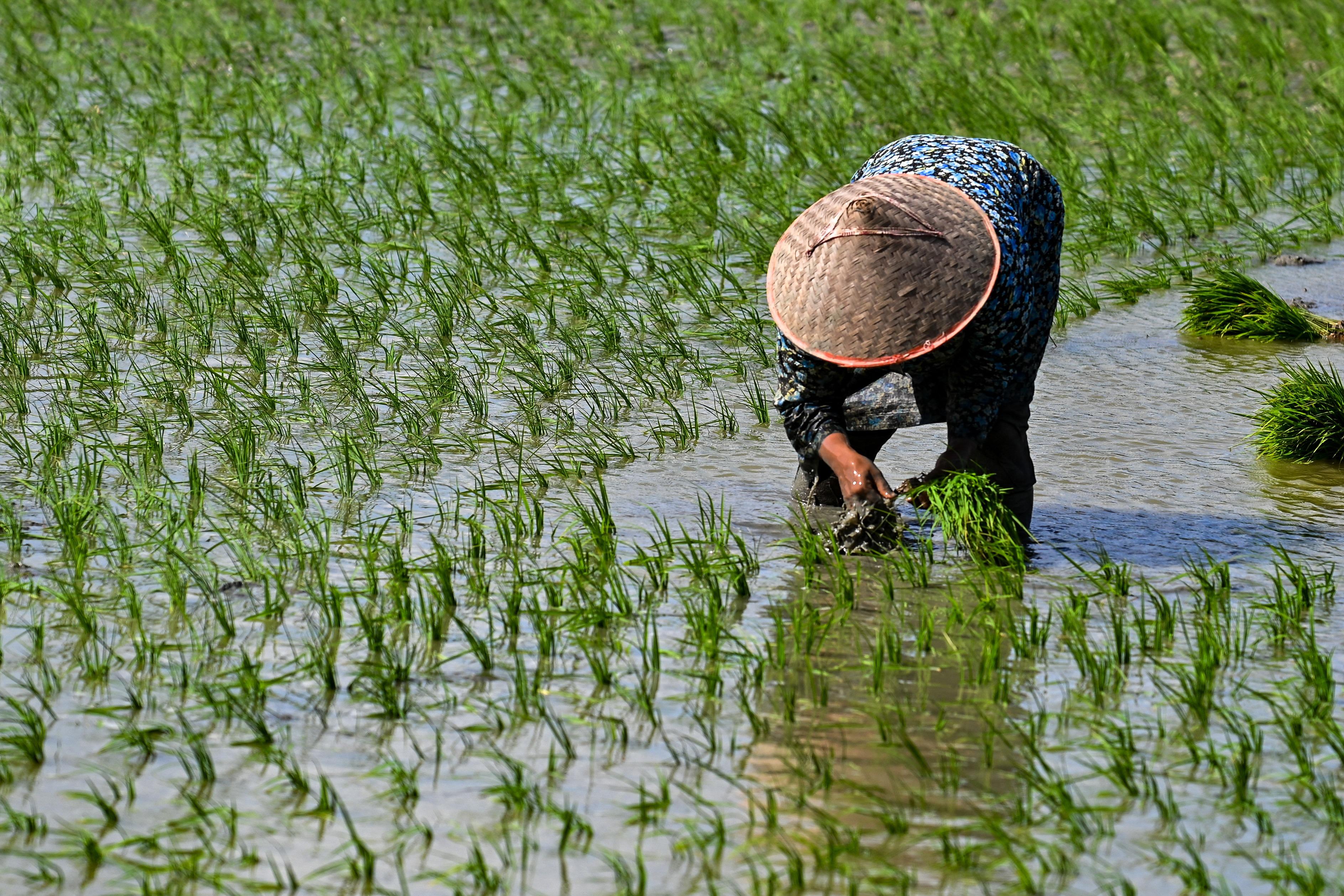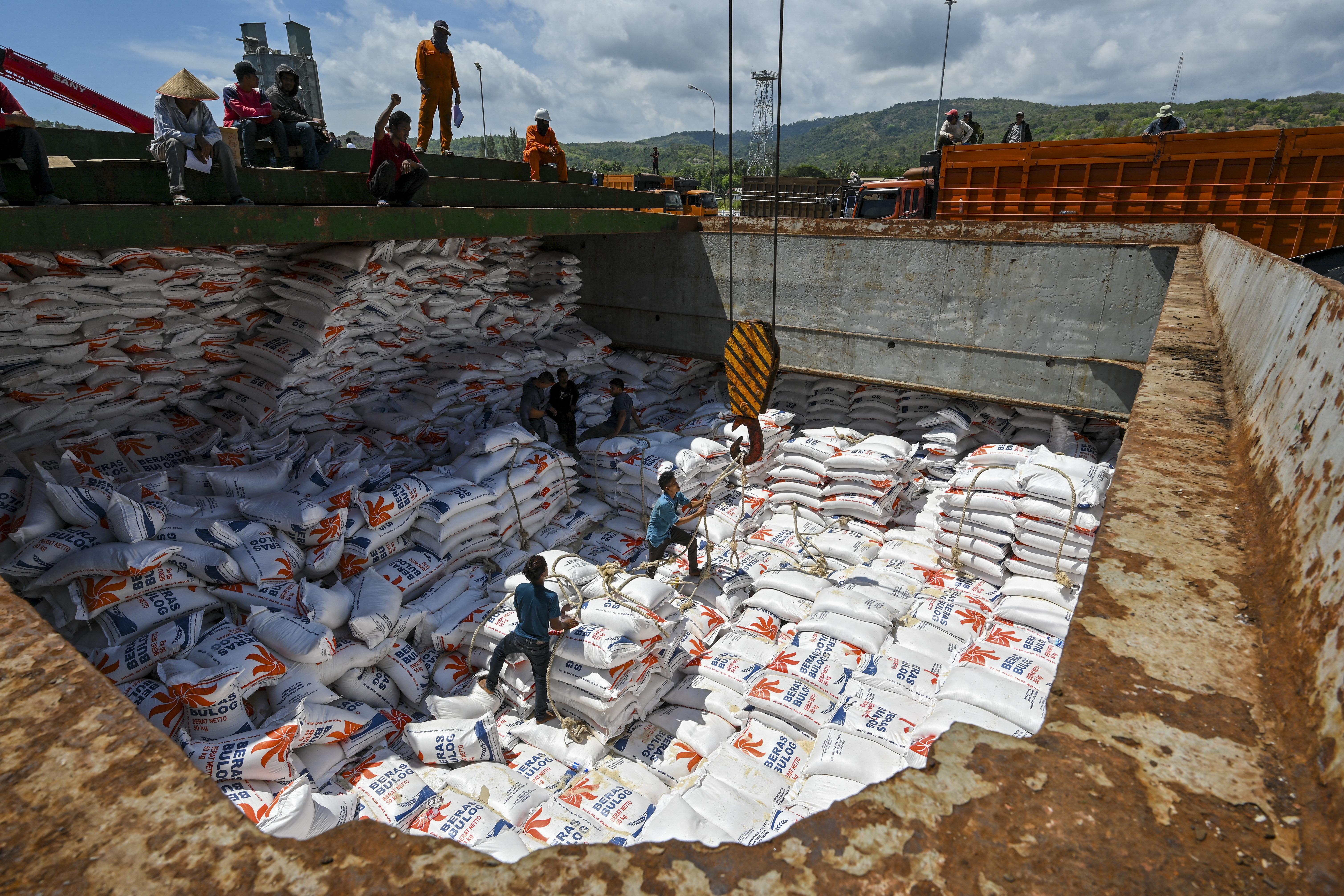 A farmer plants rice seedlings at a paddy field in Lambaro, Indonesia's Aceh province on July 24, 2023. (PHOTO / AFP)
A farmer plants rice seedlings at a paddy field in Lambaro, Indonesia's Aceh province on July 24, 2023. (PHOTO / AFP)
JAKARTA - Indonesia has ordered the military to help farmers plant rice as severe drought has reduced output of the staple in Southeast Asia's most populous country, lifting prices, requiring increased imports and threatening food security.
With planting behind schedule due to dryness fueled by the El Nino weather phenomenon, President Joko Widodo asked military supervisory officers in villages known as Babinsa to help take advantage of recent rains.
"Since rainfall has occurred on some provinces, we want to encourage farmers to start planting rice," Widodo, known as Jokowi, said on Wednesday during a visit to Pekalongan regency in central Java, according to video posted on the presidential YouTube channel.
"It has been delayed due to El Nino, but we want to immediately plant, plant, plant," he said, standing next to newly-planted rice fields.
Global rice supplies have tightened this year as the El Nino, which typically causes hotter and drier weather in Southeast Asia, reduced output in major producing and consuming countries. Prices in Asia's key export hubs have risen by as much as 45 percent to their highest in 15 years after India, the world's top supplier, restricted exports
ALSO READ: Indonesia mulls importing rice from Asian countries
Global rice supplies have tightened this year as the El Nino, which typically causes hotter and drier weather in Southeast Asia, reduced output in major producing and consuming countries. Prices in Asia's key export hubs have risen by as much as 45 percent to their highest in 15 years after India, the world's top supplier, restricted exports.
Drought has delayed Indonesia's planting for the 2024 harvest, after the country's output this year dropped to 30.9 million metric tons from 31.53 million tons a year ago.
Sugiono, a Babinsa officer attending the event, told Jokowi he had joined month-long training on rice planting in order to help the farmers, according to the video.
Earlier this month, Indonesia's agriculture minister and its armed forces chief signed a cooperation agreement that includes military personnel helping in farming and utilizing idle military land for planting, with seedlings and machinery provided by the farm ministry.
ALSO READ: From rice to wheat, Asian crops forecast lower as El Nino worsens
"Some farmers have land but are short of manpower as the farmers are getting older while the younger generations prefer to work in factories, so the armed forces can help with tools and personnel," said military spokesperson Julius Widjojono.
While typically only one Babinsa is assigned to a village, Widjojono said the officer can map out manpower needs for planting and they would be deployed from nearby military units.
Agriculture Minister Amran Sulaiman said earlier this month that the involvement of armed forces in the past had helped Indonesia to achieve food self-sufficiency, and renewed cooperation could help the country reduce rice imports.
Indonesia has emerged as one of the top rice importers after state procurement company Bulog was assigned to import 3.5 million tons this year.
 Workers unload sacks of rice imported from Thailand from a cargo ship at Malahayati Port in Krueng Raya, Indonesia's Aceh province, on June 22, 2023. (PHOTO / AFP)
Workers unload sacks of rice imported from Thailand from a cargo ship at Malahayati Port in Krueng Raya, Indonesia's Aceh province, on June 22, 2023. (PHOTO / AFP)
This week, Bulog began buying rice through an international tender of up to 534,000 tons, expected to arrive by end-January, European traders said.
Indonesia's rice-planted area between September and November declined by 53.61 percent from a year ago, according to farm ministry data. The crops planted in the last quarter of the year usually produce the main harvests for the next year.
READ MORE: El Nino to continue, raising prospects of natural disasters
Still, Indonesia said it expects rice output to increase to 32 million tons in 2024, while the main harvest in March and April will contribute 10.07 million tons, a 14 percent increase from this year.


